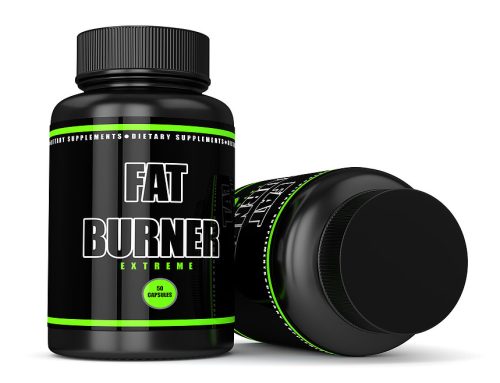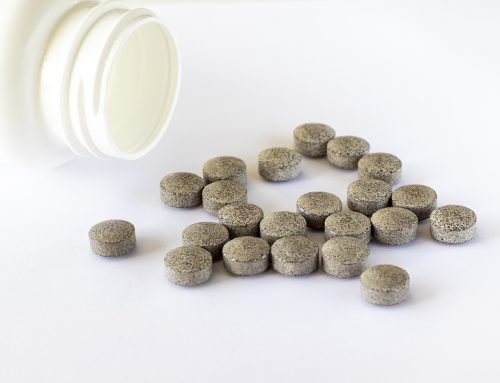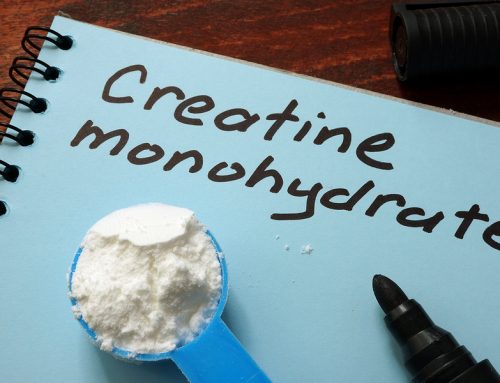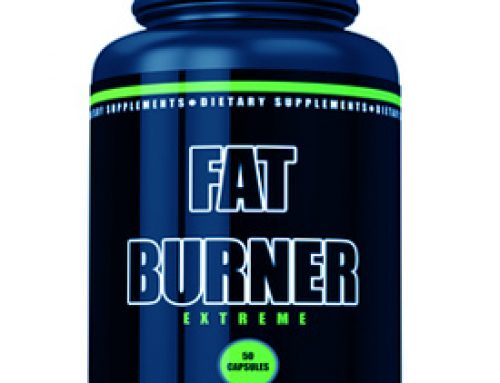Creatine is so well researched, with so much real-world feedback supporting its use, it has often been called “the supplement that actually works.” As most of our readers realize (especially after reading our exposes, like the one on fat burner scams), it’s no exaggeration to say that 95% or more of the supplements in the muscle-building, fat loss and sports nutrition market do not work as advertised, or may even be harmful. So when something comes along that actually does work and is proven safe, it’s worth taking a closer look.
 Are women missing out?
Are women missing out?
Despite it’s stellar reputation and track record, most women don’t use creatine.
One survey that was published in the Clinical Journal of Sports Medicine found that out of 806 NCAA athletes, 85% of men had heard of creatine and 48% had used it. Only 38% of women said they had heard of creatine and only 4% had used it.
That survey was quite a few years ago. However, even though more women have now heard of creatine, many are still hesitant to use it. The most common reasons cited are concerns about safety and worries about side effects. A comment that was recently posted in our forums is typical of those concerns:
Hi, I am trying to lose fat and gain muscle and I don’t care about adding bulk. I have always heard that creatine is not safe or useful for females, but then I heard a female who stated that she used it and saw great results. I also heard that it just adds a lot of water retention, that makes muscles look bigger. Does anyone know the truth?
To skip most of the scientific stuff and summarize, the truth is, creatine helps you train harder (weight training and anaerobic training), reduces neuromuscular fatigue, delays the onset of lactate accumulation during high intensity exercise and improves recovery between bouts of training, which can help you get stronger and possibly build more muscle.
These findings have been borne out after more than 1000 clinical studies. Most of the research on creatine has been done in men, but it’s a misconception that there’s no research on women. Just see the list at the end of this article. Plenty of creatine studies have used women as subjects – both trained and untrained.
As far back as 1992, researchers found that women absorb creatine efficiently and continued use increases the total creatine pool in the muscles – just like men. Research also shows creatine helps women get stronger.
A study from 1997 involved untrained female (nonvegetarian) subjects who took 20 g of creatine monohydrate per day for 4 days, then 5 grams per day for 10 weeks during a strength training program. The researchers said, “It is concluded that long-term creatine supplementation enhances the progress of muscle strength during resistance training in sedentary females.”
A 2003 study on female softball players reported that creatine, loaded at 20g for a week, increased mean strength and endurance in trained females.
Creatine definitely works for women, although research shows that it works better for some people than for others, respectively called “responders” and “non-responders.” One study said that 20-30% of people are non responders. However there is no research suggesting that creatine works any better for men than for women, at least relatively speaking (men have larger muscle size, so the larger muscle cross sectional area might explain relative differences in results).
Why are so many women hesitant to take creatine?
One concern from women about creatine is that it will make them bulky or gain huge amounts of muscle mass. It’s possible that some gains in lean body mass can occur with creatine use – but it will not make women huge or masculine.
Creatine is an over-the-counter supplement – it is NOT a drug or steroid, so it’s not going to produce any incredible gains in muscle size, although the muscle gains can sometimes be significant, especially in men. Gaining muscle bulk is actually quite difficult for most people – even men, so with the exception of a few assorted mesomorph “genetic freaks,” gaining too much muscle is never a concern.
Usually the primary concern women have is that they claim to get bloated from using creatine. When they say “bloated” they may be referring to a few different experiences:
(a) Body weight gain – creatine sometimes helps increase fat-free body mass.
(b) Bloating in the stomach as gastrointestinal upset.
(c) Bloating or water retention under the skin.
Individual experiences may vary. In fact, this may not be unique to females – men may experience “bloating” or water retention as well, it’s just that women seem more psychologically fearful or sensitive to it.
Creatine and weight gain
Before you get worried about this, there are a couple points I want to mention. One is that gaining weight is one of the reasons people take creatine in the first place. Creatine is a supplement to help increase strength and high intensity exercise performance. Therefore, many users assume – or hope – that this will translate into muscle gains as well.
It’s also worth pointing out that not everyone gains weight with creatine use, particularly women. One of the first studies done on creatine and women (Vandenberghe) showed that creatine supplementation was able to markedly increase strength without affecting body weight or body fat and this finding was duplicated in several other studies. This tells us that women could benefit from increased strength without necessarily gaining any body weight.
In a study on female lacrosse players, creatine increased bench press strength compared with placebo, but there were no significant differences in body weight and no increase in body fat.
A study on female soccer players from the University of Alabama found the same thing – creatine increased strength (bench press and squat) but body composition did NOT change. They concluded that short term creatine supplementation can enhance strength performance in women with minimal effect on body composition.
Keep in mind that whether you gain, maintain or lose weight depends a lot on your nutritional status – are you in a surplus or a deficit for daily calories? It appears that if you are eating at maintenance or even dieting for fat loss and you take creatine, the supplement may help you increase your strength without weight gain. It goes without saying that if you are pursuing gains in lean body weight, you need to be eating in a surplus.
Creatine can cause cell “volumization” which simply means more water moves into the cells, but greater muscle cell hydration is a good kind of water weight gain. If you look at most of the research, you sometimes see weight gains of 1.5 to 2 kgs, although men usually gain more than women. In one study, the untrained women gained 5 pounds after 10 weeks, but those were “beginner gains” and it was all lean mass – most subjects had LESS body fat at the end of the study.
Personally, I’ve used creatine on and off for years and have never noticed water retention or bloating of any kind – and that’s using a loading dose of up to 25 grams a day for 7 days. The research says that concerns about bloating, water retention and gastrointestinal problems are vastly overstated. It’s been suggested that improper dosing is a common cause of these problems (more is not better, nor will it saturate your tissues any faster).
What kind of creatine is best?
Some brands of creatine are advertised specifically as not causing bloating, (among other claims), so people often experiment with different types of creatine to see if certain varieties agree with them more than others.
Unfortunately, many forms of creatine other than basic monohydrate powder are more expensive but have not been research proven. Creatine monohydrate is THE form of creatine with the most research behind it.
If you’re insistent on trying some of the other forms besides monohydrate, check out “The Creatine Graveyard” by Will Brink and “What is the Best Form of Creatine from Examine.com (which includes the newest “latest, greatest,” Creatine Nitrate):
“The Creatine Graveyard” by Will Brink: http://www.brinkzone.com/bodybuilding/the-creatine-grave-yard/
“What is the Best Form of Creatine” from Examine.com: http://examine.com/faq/what-is-the-best-form-of-creatine.html
How much (Creatine dose)
Creatine is found naturally in foods such as beef and some fish, but it would take a huge amount of the food sources to get enough creatine for the performance enhancement effect, so that’s why people use the creatine powder supplement (it would take 2.2 kg of steak to equal the amount you’d get in a single 5 gram dose of powder)
The usual dose is 20-25 g for 5-7 days (loading phase), then 5g per day thereafter. The loading phase can be skipped, but it takes about a month of 5g daily doses to saturate the muscle – loading allows one to obtain benefits more quickly. For anyone who finds that 20-25 grams a day of creatine doesn’t sit well in the stomach, the fact that the loading phase is optional might be a solution. 5 grams a day should probably not bother anyone’s stomach, especially if taken with a meal.
Creatine: Effective and safe for men and women
People with pre-existing health conditions should ask their doctor before taking creatine or any other supplements. But the bottom line is that creatine is a safe and effective sports supplement for healthy men and women (creatine has actually been studied for therapeutic uses as well). There’s so much research published on the safety of creatine that it’s far beyond the scope of this article to cover it.
For a supplement with so much high quality science behind it, it’s amazing that there are so many myths about it. These range from “creatine causes cramping and sports injuries to cancer and kidney damage.” Most of this nonsense comes from the media (television, newspapers, radio, lay magazines), as well as uninformed chit-chat from self-anointed “experts” in the gym.
Creatine side effects have been greatly exaggerated. In fact, according to Jeff Stout, PhD, author of Essentials of Creatine in Sports and Health, the only clinically reported “side effect” of creatine use is weight gain! Yes, even the reports of cramping and dehydration have been dis-proven with randomized controlled research (believe it or not, the reverse is true – a study on NCAA athletes showed that creatine users had lower incidence of cramping, dehydration, muscle tightness, muscle pulls/strains, joint injuries and missed practices.
The question of impurities in creatine has been brought up, but this can occur in all types of supplements and consumers should do their due diligence when choosing which companies to patronize. In the case of creatine, the major manufacturers are in Germany and the United States. Another is located in China and various impurities have been detected in creatine sourced from China.
Most women’s fears of using creatine are unwarranted. Just as diet and fitness myths lead people down the path of taking bogus supplements that don’t work, myths sometimes cause us to miss out on legitimate supplements that really DO work. Women who are interested in getting stronger and increasing performance in the gym or in anaerobic / power sports who avoid creatine because of these common myths may be missing out on one of the very few effective over-the-counter performance enhancers.
References
Ayoama R et al, Effects of creatine loading on muscular strength and endurance of female softball players.J Sports Med Phys Fitness. 2003 Dec;43(4):481-7. University of Osaka, Japan.
Brenner M et al, The Effect of Creatine Supplementation During Resistance Training in Women, Journal of Strength and Conditioning Research, 2000, 14(2), 207–213 Virginia Tech.
Eckerson, JM et al, Effect of two and five days of creatine loading in anaerobic working capacity in women. J Strength Cond res (18(1); 168-173 2004. Creighton University, Omaha, NEHarris RC, et al, Elevation of creatine in resting and exercises muscle of normal subjects by creatine supplementation, Clin Sci (Lond). 1992 Sep;83(3):367-74, Huddinge University Hospital, Sweden
Kambis KW, Pizzedaz SK. Short-term creatine supplementation improves maximum quadriceps contraction in women.Int J Sport Nutr Exerc Metab. 2003 Mar;13(1):87-96.Department of Kinesiology at The College of William and Mary, Williamsburg, VA
Kirksey B et al, The effects of creatine monohydrate supplementation on performance measures and body composition in collegiate track and field athletes. J Sterngth Cond res 13(2); 148-156, 1999, Appalachian State University, Boone, NC.
LaBotz M, Creatine supplement use in an NCAA Division I athletic program.Clin J Sport Med. 1999 Jul;9(3):167-9. University of North Carolina at Chapel Hill, 27599-7470, USA.
Larson-Meyer DE et al. The effect of creatine supplementation on muscle strength and body composition during off-season training in female soccer players. J Strength Cond Res 14(4): 434-442, 2000.
McKenna et al, Creatine supplementation increases muscle total creatine but not maximal intermittent exercise performance. J Appl Physiol. 1999 Dec;87(6):2244-52. Victoria University of Technology, Melbourne, Victoria 8001, Australia.
Parise G, et al, Effects of acute creatine monohydrate supplementation on leucine kinetics and mixed-muscle protein synthesis.J Appl Physiol. 2001 Sep;91(3):1041-7. Department of Kinesiology, McMaster University, Hamilton, Ontario, Canada.
Stout J et al. Effect of creatine loading on neuromuscular fatigue threshold. J Appl Physiol, 88: 109-112, 2000. Creighton University, Omaha NE.
Smith SA et al, Effects of creatine supplementation on the energy cost of muscle contraction: a 31P-MRS study.J Appl Physiol. 1999 Jul;87(1):116-23, Boston University.
Syrotiuk DG, Bell GJ, Acute creatine monohydrate supplementation: a descriptive profile of responders vs nonresponders. J Strength Cond Res, 18(3); 610-617, 2004.M
Tarnopolsky, MA Creatine supplementation enhances high-intensity exercise performance in males and females, Int J Sport Nutr Exerc Metab. 2000 Dec;10(4):452-63. McMaster University, Ontario, Canada
Vandenberghe K, et al, Long-term creatine intake is beneficial to muscle performance during resistance training, J Appl Physiol. 1997 Dec;83(6):2055-63. University of Leuven, Belgium
Zeigenfuss TN et al, Effect of creatine loading on anaerobic performance and skeletal muscle volume in NCAA Division 1 athletes, Nutrition 18: 397-402, 2002.
About Tom Venuto
Tom Venuto is a lifetime natural (steroid-free) bodybuilder, fitness writer and author of Burn The Fat, Feed The Muscle: Fat Burning Secrets of Bodybuilders and Fitness Models (e-book) and the national bestseller, The Body Fat Solution, which was an Oprah Magazine and Men’s Fitness Magazine pick. Tom has appeared in The New York Times, Wall Street Journal, Huffington Post, Oprah Magazine, Muscle and Fitness Magazine, Ironman Magazine and Men’s Fitness Magazine, as well as on dozens of radio shows including Sirius Satellite Radio, ESPN-1250 and WCBS. Tom is also the founder and CEO of Burn The Fat Inner Circle – a fitness support community for inspiration and transformation






Thanks for the great (as always) article. I have an aversion to powders of any kind and I’m wondering if a pill form would be acceptable? Also, can the loading dose, if taken in pill form, be spread out over a day? Lastly, I hear a lot of guys at the gym say the Kre-Alkyn (sp) is the best form. Any comment on that?
THANKS!!
Hi Jim. pills (capsules) will probably prove not cost effective compared to creatine monohydrate powder. mix the powder in a drink, protein shake, etc. and you wont even know its there. re Kre alkalyn, it has NOT been proven more effective than monohydrate form of creating. For more info on the study, see: http://www.ncbi.nlm.nih.gov/pubmed/22971354
Hi Tom:
Do you need to cycle off creatine to keep it effective or can it be taken continuously?
Hi maggie – . There is no evidence suggesting more benefit from cycling on off and going back on. Its also safe to stay on it – has been around since early 90’s, so well studied over long term.
I started using creatin when I read the article about it in your inner circle and used it during my transformation contests (3 now) with you! I used AdvoCare’s Mass Impact because I trust the safety and quality of the company…I definitely put on muscle and burned fat during all the contests, but I think that is the result of many things in place, healthy eating/carb cycling, strength training and yes, nutritional supplementation such as creatin, omega, whey protein and probiotic. Perhaps because of the probiotic or the quality of the creatin I had no bloating side effects.
at the end of these studies, were the creatine subjects in better shape? e.g. did they have a lower BMI, for example.
creatine is not a weight loss supplement so Body weight and therefore BMI, would not be expected to go down. BMI is not the best measure of progress – body composition is. If anything body weight would go up, but body composition (lean body mass) would improve, so if weight was gained it would be the good kind of weight. So when body composition improves, you are “in better shape” whether that is less fat or more muscle.
ok so has creatine been shown to improve body composition? you’re very kind to answer me. :)
I tried creatine and I was amazed at how much energy I had for my work outs. It definitely worked to give me more energy and endurance. I was really pleased. Then one morning as I was buttoningy my blouse, it was very tight. I definitely “blew up like a blow fish” in terms of water retention. I guess I am one of those women who does have water retention under the skin. So I stopped. Recently I found a pre-workout supplement just for women without creatine. I noticed a big endurance and training kick with it, and others in my kick boxing classes are trying it too. Even my husband tried it one day and reported an increase in energy and endurance. It’s called Fem Fire and my local supplement store recommended it. Would love a review on it from you. Thanks for the interesting and comprehensive articles.
Patti
It was great to know about your experience with creatine. There are a big number of women yet to know about creatine and its effects. I hope this post will make some more women to know about creatine. :)
Hi Tom,
Thanks for the great info on Creatine.
My question is ” is it only benefiting if taken on a daily basis?”
I take 5 grams but only on my high intensity training days, not daily.
I take it on an empty stomach with 4 BCAA capsules.
My training is interval swimming, not weights, so I prefer to train before eating as I would throw up if I ad food in my stomach.
Sometimes when i have done a really high intensity sprint lap the Creatine “repeats” on me but usually I have no problems.
My training is for fat loss and strength building with a few strength building exercises done in the water, like pull ups on the diving blocks, one leg squats holding the pool stair rails with my hands etc.
I’ve never considered taking it daily only before my 2 heavy swim and exercise days.
Would love your input. Thanks
Hi Cindy, yes a maintenance dose is taken daily. That dosage/prescription is based on the research that showed the favorable results.
Tom –
Great article, thanks! Now, don’t go getting “soft” on us, no articles requiring tissue or anything.
: )
Dont worry, I never get soft. I did in fact promise I would do plenty of “female friendly” blog posts, though… so they are on the way! Cheers, TV.
I’ve taken 5-10 g a day for just a week now and already see a little increase in leg muscles- just started light weight program but i use it before cardio and hiking. I’m a 59 year old female with fibromyalgia, which deteriorates your muscles, so i thought it might help with that too.
I’ve read repeatedly that you have to take it with grape juice or some sugar to get an insulin spike. I don’t normally do juices or sugar, and i’m trying to lose about 10 pounds of fat, so this is contrary to the avoiding high glycemic foods, plus the carbs in a glass of juice. Is this necessary? Would water sweetened with Agave work? It’s very sweet but low calories and carbs.
Thanks much!
Sophia, you dont need the sugar with the creatine – not mandatory. If your goal is fat loss, save yourself the calories and just take the straight creatine powder
Great article Tom. Have studies shown any age differences in the efficacy of creatine?
Lots of great information, Tom. I always urge my female friends to try taking creatine and have written a blog post about the topic myself. Thanks.
Great Article. i also had many doubts about creatine in my mind ,this article has helped me to get rid of them . Thanks
Great article. Creatine Monohydrate is definitely the king of creatine. Most researched and most effective of all the different types
.